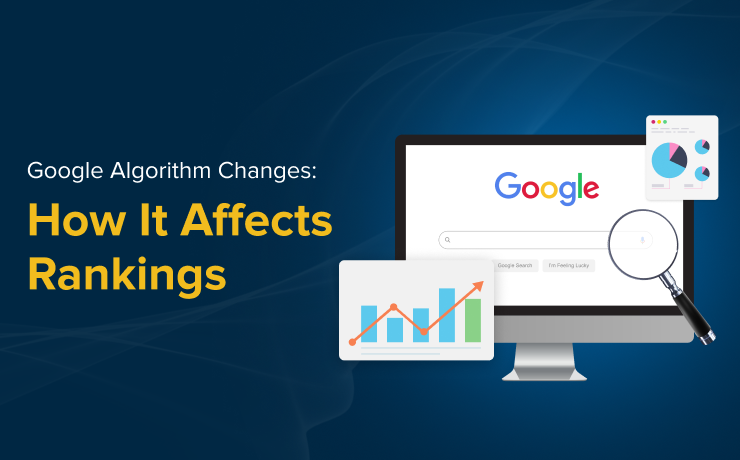Google’s search algorithm is a complex system used to retrieve data from its search index and instantly deliver the best possible results for a query. With constant updates and refinements, understanding Google’s algorithm updates and their impact on your SEO strategy is crucial for maintaining and improving your website’s rankings. In this article, Pionners Media will explore recent Google algorithm updates, their implications, and strategies to adapt to these changes effectively.
What Are Google’s Algorithm Updates?
Google’s algorithm updates are changes made to improve the relevance and quality of search results. These updates can be minor adjustments or major changes that significantly impact search engine rankings. The goal is to provide users with the most accurate and relevant information quickly.
Types of Algorithm Updates
- Core Updates: Major changes that affect a broad range of search queries. These are typically rolled out several times a year.
- Minor Updates: Smaller tweaks and improvements that happen more frequently.
- Specific Algorithm Updates: Target specific aspects of search, such as content quality, backlinks, or user experience.
Recent Google Algorithm Updates
1. Google Core Update (May 2023)
Overview: The May 2023 Core Update focused on improving the quality and relevance of search results by refining how Google evaluates content.
Implications:
- Websites with high-quality, authoritative content saw improved rankings.
- Sites with thin or low-quality content experienced drops in rankings.
Strategy:
- Conduct a content audit to ensure all pages provide value, are well-written, and authoritative.
- Improve E-A-T (Expertise, Authoritativeness, Trustworthiness) signals.
2. Google Page Experience Update (June 2021)
Overview: This update focused on user experience, incorporating Core Web Vitals as ranking factors.
Implications:
- Page load speed, interactivity, and visual stability became critical ranking factors.
- User-friendly, mobile-optimized sites gained an advantage.
Strategy:
- Optimize page load times by compressing images, leveraging browser caching, and minimizing JavaScript.
- Ensure mobile-friendliness with responsive design and mobile-optimized content.
- Improve site navigation and user interface to enhance user experience.
3. Google Spam Update (November 2021)
Overview: Aimed at reducing spammy content and improving the quality of search results.
Implications:
- Sites engaging in black-hat SEO techniques like keyword stuffing, cloaking, and spammy backlinks saw penalties.
- High-quality, original content rewarded.
Strategy:
- Avoid black-hat SEO techniques and focus on ethical SEO practices.
- Regularly monitor backlink profiles to disavow spammy links.
- Ensure content is original, valuable, and well-structured.
Strategies to Adapt to Google’s Algorithm Updates
Adapting to Google’s algorithm updates requires a proactive approach to SEO. Here are some strategies to help you stay ahead:
1. Focus on High-Quality Content
Content is the cornerstone of SEO. Google rewards sites that provide valuable, informative, and engaging content.
- Create In-Depth Content: Write comprehensive articles that thoroughly cover a topic.
- Use Data and Research: Support your content with data, research, and authoritative sources.
- Update Regularly: Keep your content fresh and up-to-date to maintain relevance.
2. Improve Technical SEO
Technical SEO involves optimizing your website for the crawling and indexing phase. It ensures that your site meets the technical requirements of search engines.
- Optimize Site Speed: Use tools like Google PageSpeed Insights to identify and fix issues.
- Ensure Mobile-Friendliness: Use responsive design to provide a seamless experience across devices.
- Fix Crawl Errors: Regularly check Google Search Console for crawl errors and fix them promptly.
3. Enhance User Experience (UX)
Google prioritizes websites that offer a positive user experience.
- Improve Site Navigation: Make it easy for users to find what they’re looking for.
- Use Clear CTAs: Ensure your call-to-action buttons are clear and lead users to the desired action.
- Optimize for Accessibility: Make your site accessible to all users, including those with disabilities.
4. Build Quality Backlinks
Backlinks from reputable sources signal to Google that your site is trustworthy and authoritative.
- Guest Blogging: Write for reputable blogs in your industry.
- Create Link-Worthy Content: Produce high-quality content that others want to link to.
- Reach Out: Contact influencers and industry leaders to share your content.
5. Monitor and Analyze Performance
Regular monitoring and analysis help you understand the impact of algorithm updates and adjust your strategy accordingly.
- Use Analytics Tools: Tools like Google Analytics and SEMrush provide insights into traffic, rankings, and user behavior.
- Track Keyword Rankings: Monitor your keyword rankings to identify trends and changes.
- Analyze Competitors: Keep an eye on competitors to understand their strategies and performance.
6. Optimize for Core Web Vitals
Core Web Vitals are a set of metrics related to speed, responsiveness, and visual stability.
- Largest Contentful Paint (LCP): Ensure the main content loads quickly.
- First Input Delay (FID): Optimize for quick interactivity.
- Cumulative Layout Shift (CLS): Minimize unexpected layout shifts.
7. Stay Informed
Google frequently updates its algorithms, and staying informed is crucial.
- Follow SEO Blogs: Stay updated with reputable SEO blogs like Moz, Search Engine Journal, and Google’s own blog.
- Join SEO Communities: Participate in forums and communities to learn from other SEO professionals.
- Attend Webinars and Conferences: Engage in webinars and conferences to stay abreast of the latest trends and updates.
Conclusion
Understanding Google’s algorithm updates and their impact on your SEO strategy is essential for maintaining and improving your website’s rankings. By focusing on high-quality content, improving technical SEO, enhancing user experience, building quality backlinks, and staying informed about the latest updates, you can adapt effectively to changes and ensure your site continues to perform well.
At Pionners Media, we specialize in helping businesses navigate the complexities of SEO and Google’s algorithm updates. Contact us today to learn how we can help you optimize your website, improve your rankings, and achieve your digital marketing goals.
